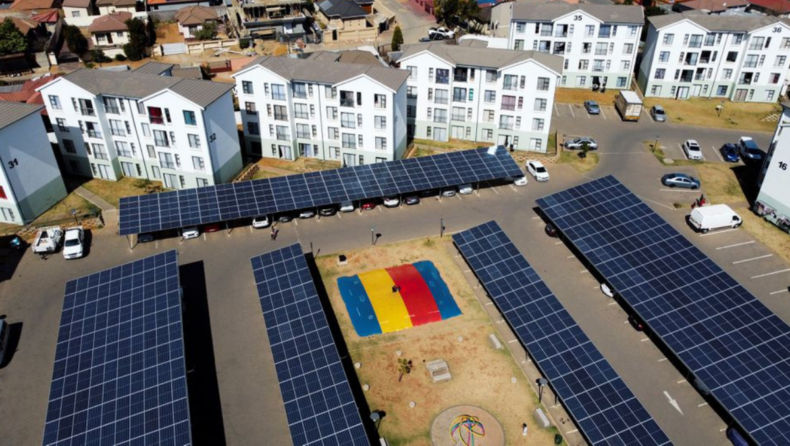Pierre Moureau, who has rooftop solar panels, only sees the blackouts that often leave South Africans in the dark when complaints appear on his Johannesburg neighborhood’s WhatsApp group.
“I have a certain standard of living,” the 68-year-old financial planner, who relaxes in his private sauna, explained. “I want to be able to live according to the way I am.”
As Africa’s most industrialized economy suffers from a deepening power crisis, generating public outrage, President Cyril Ramaphosa has vowed to eliminate red tape in order to increase the use of renewable energy in coal-dependent South Africa.
However, many South Africans are not waiting for the government to act, and their impatience has resulted in a surge in small-scale solar installations.
“I cannot be without power. It’s as simple as that “added Moureau, whose solar panels power both his house and his neighboring business. “Every minute I down cost me money.”
South Africa imported solar PV panels worth roughly 2.2 billion rands ($135 million) in the first five months of this year alone, according to a Reuters analysis of customs data. According to estimates, this corresponds to more than 500 megawatts of peak producing power.
The panels, if deployed, will raise the 2.1 gigatonnes of projected existing small-scale solar producing capacity by 24%, exceeding what the government has managed to buy in a decade of its utility-scale solar policy.
“It’s completely unrecognized by the government as to how big an industry it’s become,” said Frank Spencer, spokesperson for the South African Photovoltaic Industry Association. “It’s a silent revolution.”
Most systems in a country that requires 4 to 6 gigatonnes of additional output to eliminate widespread power outages, known locally as load shedding, are not registered and send nothing back into the power-starved grid.
And, for the time being, their exorbitant cost means that they are just a solution for the comparatively wealthy, increasing gaps in what is already one of the world’s most unequal nations.
“If you’ve got money, you can do it yourself,” said Solly Silaule, who, like nearly half of South Africans, is unemployed. “But the people who are suffering have no money to buy those panels.













